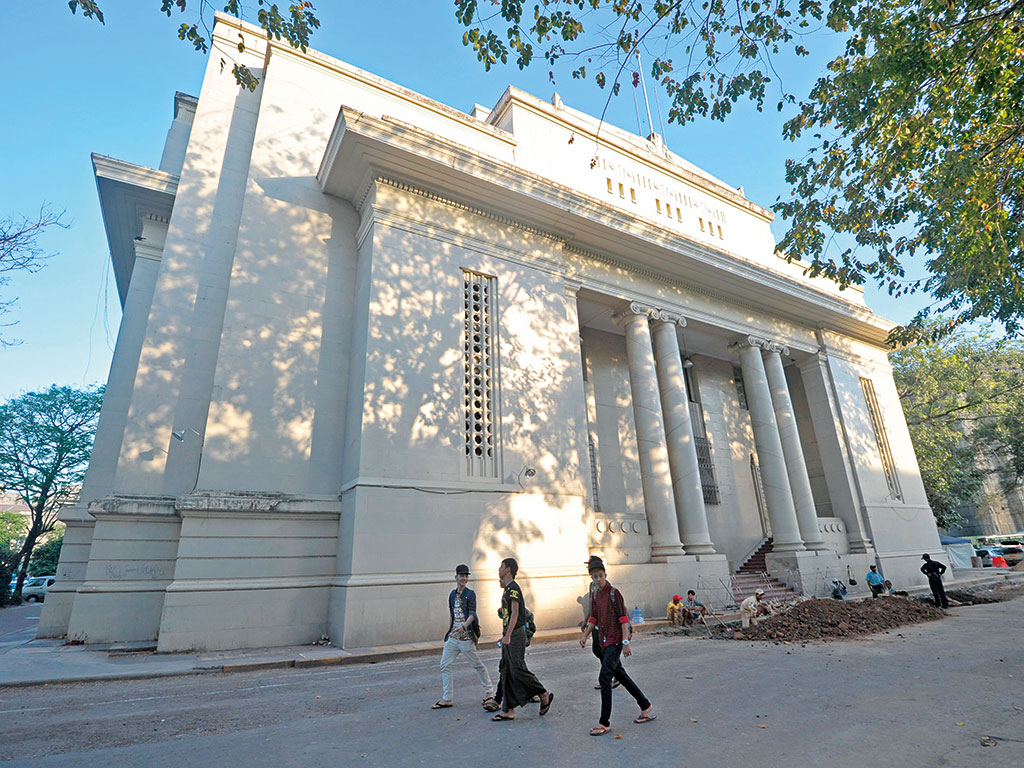
The financial industry in Myanmar is in a phase of momentous transformation, with new market entrants in the banking sector, both local and foreign, the emergence of the private insurance sector, and the launch of the Yangon Stock Exchange driving growth. The government’s focus on liberalisation has also created a dynamic and attractive landscape for both foreign investors and the international business community, and Myanmar’s financial landscape has benefitted greatly as a result.
spoke to Nang Kham Noung, Executive Director of KBZ Bank, about the transformation sweeping the banking sector and what the future holds for financial services.
There are tremendous opportunities for growth in Myanmar’s banking sector as most figures cite that the unbanked population comprises 95 percent of the country’s population
How would you assess the outlook for growth in Myanmar’s banking sector?
Due to increased competition in the industry, Myanmar’s banking sector is becoming more dynamic. In addition to the extension in commercial banking products, many banks are now starting to concentrate on new segments such as SMEs and the mass market.
There are tremendous opportunities for growth in Myanmar’s banking sector as most figures cite that the unbanked population comprises 95 percent of the country’s population. Taking into account that only five percent of the population is participating in the banking sector, the prospect for immense growth is certain. Among the banked population, we are already starting to see incomes rise in the cities and the seeds of an emerging middle class starting to show.
There has been strong interest from foreign banks wishing to enter the Myanmar market. A total of 25 banks bid initially on a license to operate, with nine banks coming from Australia, Japan, Singapore, Malaysia, Thailand and China eventually being awarded licenses. This is a clear indication of the positive outlook for future growth and a sign of confidence in Myanmar as a market for the international community.
What government reforms are required to make the banking sector more internationally competitive?
The government has undertaken many reform initiatives since the political, economic and social liberalisation commenced in 2010. We have to acknowledge that the Myanmar government has been extremely progressive, taking into account that the country has been isolated for over 50 years. Since 2010 the government has instituted extensive reforms to the banking sector and has given it increased international credibility. The regulatory environment is much more flexible today.
Are financial institutions ready for the current course of development?
The rate of development in recent years has been rapid and fast paced. Some of the financial institutions in Myanmar have been flexible and innovative in keeping with the changing financial ecosystem. The financial institutions that have been flexible have been able to capitalise on liberalisation, greatly expanding their operations and product range year-on-year, while others have been left lagging behind. Financial institutions like KBZ that focus on investing in human capital, technology and strengthening corporate governance are best equipped to thrive in this evolving landscape.
What are the biggest challenges for KBZ Bank and the banking sector in general?
The biggest challenge facing the entire banking sector is the shortage of skilled and qualified banking professionals within Myanmar. As a whole, the banking sector here is expanding and adding more people into its ranks every month. There is increased demand as well as increased competition to recruit suitable talent locally. KBZ Bank has experienced unprecedented growth. In 2012 we had less than 5,000 employees while today we have reached over 13,000. We are facing increased difficulties recruiting staff with strong technical and analytical skills. We are also finding it more difficult to recruit staff for our branches outside of the city areas.
How do you overcome these challenges?
I believe people are our best asset. KBZ Bank is investing heavily in the development of HR capital. We provide comprehensive training programmes at all stages of employment and opportunities to develop new skills. We have dedicated training centres in our two largest cities of Yangon and Mandalay to ensure our employees are equipped with the necessary skills to move our company forward. We have also sent many of our employees abroad on education and training programmes, as well as to our partner banks to facilitate knowledge transfer and acquire international best practices.
What does the future hold for KBZ?
We look at the future with optimism. With the new reforms come challenges as well as opportunities. At present we are working to transform ourselves to become regionally competitive while maintaining our position as a leading bank with the largest market share in Myanmar. We believe that we are very well placed to grow along the trajectory as the country grows and bring our people along with us.


